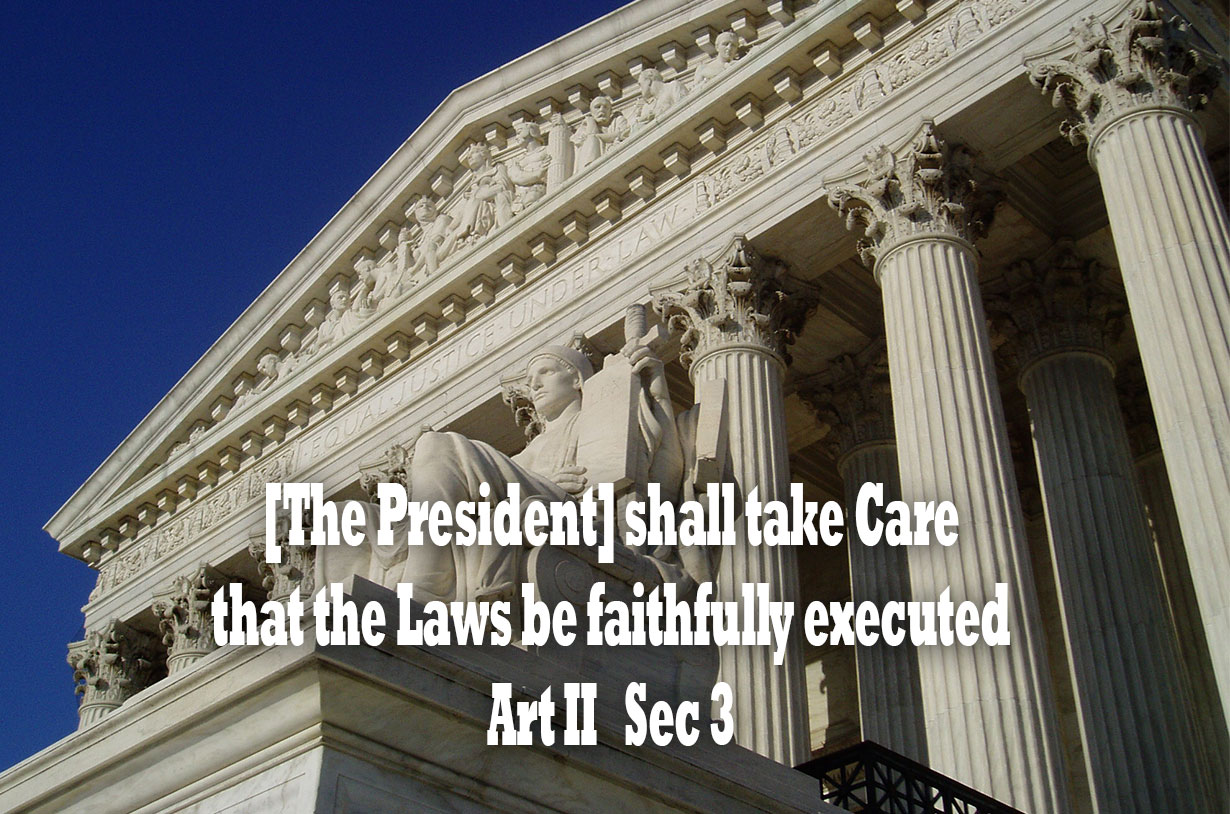The Supreme Court agreed last week to hear a challenge brought by Texas and 25 other states on the constitutionality of President Obama's executive decision in 2014 to grant de facto legal status to millions of undocumented immigrants. The Administration's unilateral action, the states argue, exceeded presidential authority and violated the Administrative Procedures Act, which governs how federal agencies establish regulations.
The "bombshell" in the announcement, according to law professor David Bernstein, is that the high court will also be reviewing whether the president's action violates the Take Care Clause of the Constitution:
In the process of granting review of the decision, by the U.S. Court of Appeals for the 5th Circuit, invalidating the Obama administration's immigration guidance granting de facto (albeit revocable) legal status to hundreds of thousands of undocumented residents of the United States, the Supreme Court unleashed a bombshell. Without any explicit request from the parties, the court added the following question for review: "Whether the Guidance violates the Take Care Clause of the Constitution, Art. II, §3."
This is a stunning development. The clause states that "[The President] shall take Care that the Laws be faithfully executed." This is the first time, to my knowledge, that the Supreme Court, maybe any court, has suggested that the Take Care Clause is justiciable (i.e., that the president's (in)actions are subject to judicial review under the clause). I'm not sure that any Supreme Court litigant has ever even seriously pursued an argument under the clause.
Opponents have long argued that President Obama’s unilateral actions — "deportations, alter provisions of the Affordable Care Act, limit carbon emissions to combat climate change and toughen the requirements on firearms merchants" — exceeded presidential authority and power. Writes James Oliphant, "
In taking the case, the justices indicated they will consider whether Obama violated not just federal immigration statues but the Constitution as well, raising the possibility that the court could articulate a forward-looking principle that limits the reach of a president's executive authority – particularly with regard to domestic issues. Presidents historically enjoy more freedom to act unilaterally when it comes to foreign affairs.
Should Obama lose before the Supreme Court, the case could tie the hands of a future president to act in similar ways.
The Supreme Court's decision to take the case followed a ruling by the U.S. Court of Appeals invalidating President Obama's executive action on immigration. The case's oral arguments are likely to be heard in April, with a decision handed down in June.


